An average domestic shorthaired cat should weight between 8-10 pounds. You can test your cat by gently squeezing her sides. She may be overweight if you can’t immediately feel her ribcage.
Your cat will be weighed at each annual wellness exam and your veterinarian should be able to note right away if your cat is overweight and at risk. Your veterinarian will also be able to help formulate a weight loss program that will focus on diet and exercise.
Sometimes our love for our cats can make us oblivious to some weight gain. To us, our perfect, beautiful cat has simply become more soft and squishy– perfect for cuddling, right? Wrong. Unfortunately, a cat who is overweight is more prone to certain health problems.
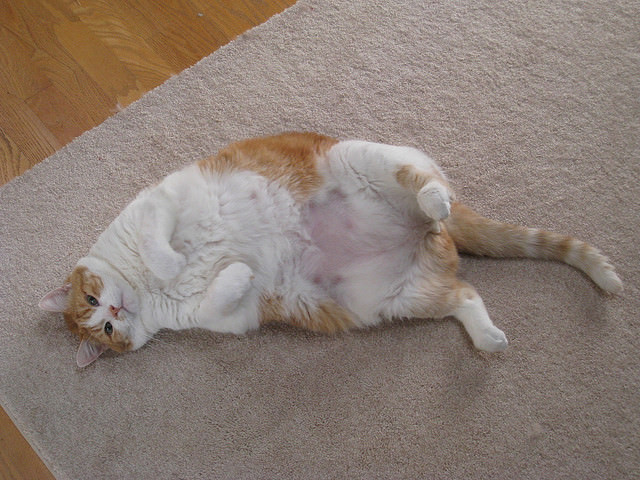
Image Source: Dan Perry via Flickr.com
Osteoarthritis
Arthritis is most common in senior cats since joints naturally degenerate with age, but an overweight cat is prone too because her weight will put extra strain on her joints.
Your cat may have osteoarthritis if you’ve noticed a change in her mobility, since it will cause her joints to be achey, inflamed, and stiff. You may also notice that she’s hesitant to jump onto former well-loved perches or avoiding the litter box (that may be painful for her to climb in and out of).
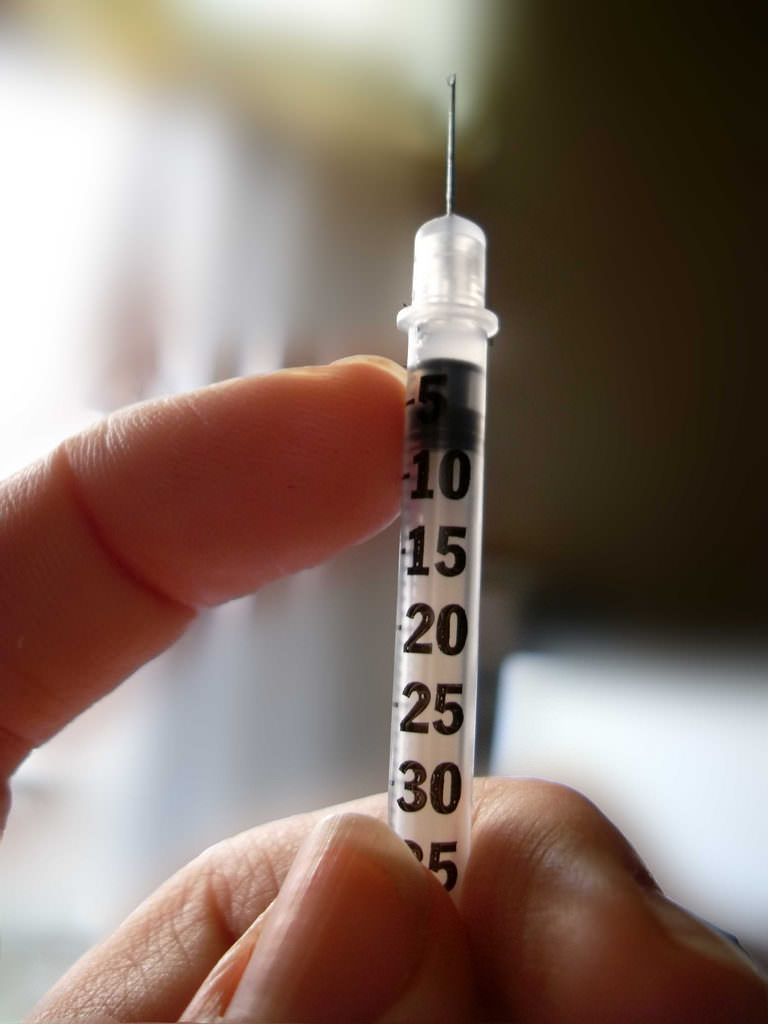
Image Source: Sarah via Flickr.com
Feline Diabetes
Though healthy-weight cats sometimes develop diabetes, obese cats are much more prone. Diabetes will render your cat unable to regulate her own glucose levels. Treatment may involve daily insulin injections and more frequent veterinarian visits to assess her health and progress. Left untreated, feline diabetes can be fatal.
The early warning signs are lethargy, extreme thirst, and frequent urination.
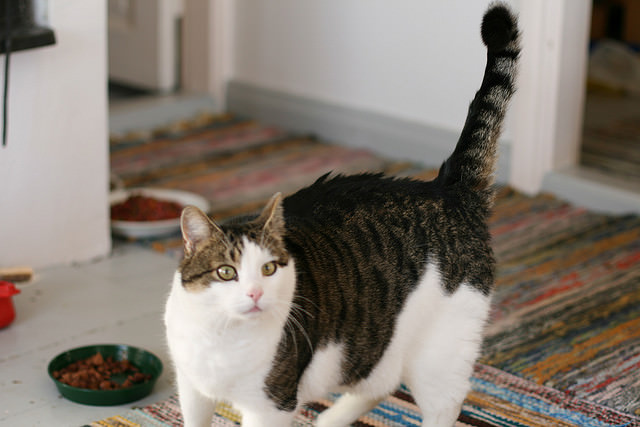
Image Source: Jan-Erik Finnberg via Flickr.com
Respiratory Problems
Overweight cats often have respiratory problems. Pay attention if your cat is breathing through an open mouth, is breathing noisily, is breathing faster than normal, or is taking shallow breaths. Oxygen, of course, if necessary for every one of your cat’s bodily functions, so see a veterinarian right away if she is having trouble breathing.
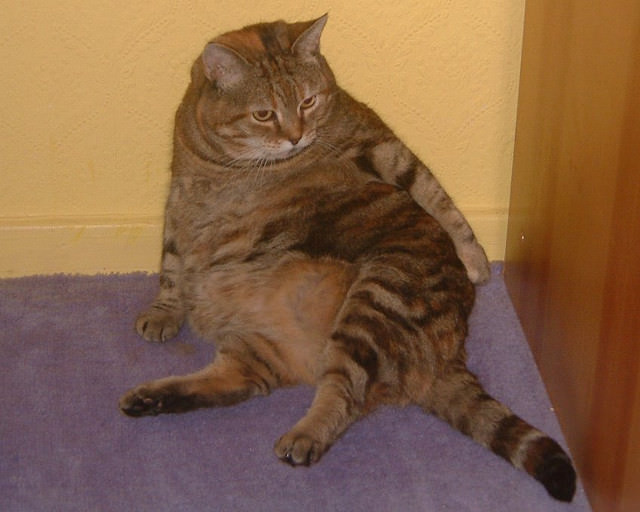
Image Source: Les Chatfield via Flickr.com
Non-Allergy Skin Conditions
If your cat’s obesity is hindering her ability to properly groom herself, she will be more prone to skin conditions and knots in her coat. While you’re working with your veterinarian to determine a good weight loss routine, you can ease her skin and coat discomfort by helping her groom. A good brushing session can help work out knots, clean up loose dead skin cells, and distribute her natural oils throughout her coat.
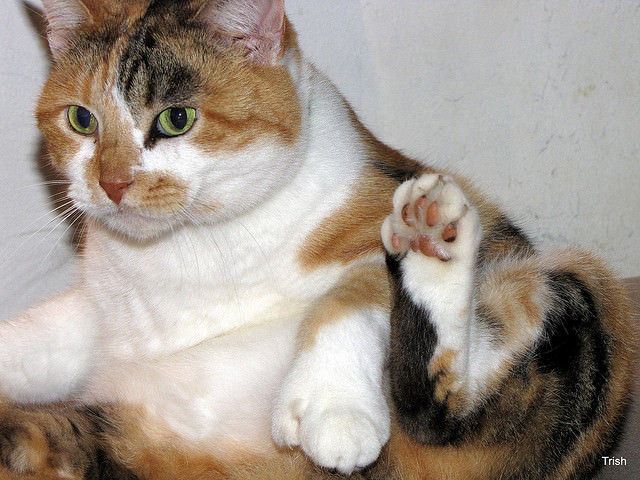
Image Source: Trish Hamme via Flickr.com
Heart Stress
An overweight cat’s heart will be working overtime to pump blood to and from all the extra fatty tissues, which may lead to heart disease in time.

